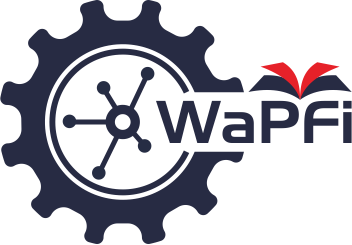A bibliometric analysis of problem based learning in physics education 2014-2024
Abstract
The research trends and developments in the field of Problem-Based Learning (PBL) within physics education over the period from 2014 to 2024 using the biblioshiny package and data sourced from Scopus This article explored the most relevant research topics, identified the leading authors, and evaluated keyword trends related to PBL in physics education. The analysis focuses on understanding how PBL has been implemented and evolved in physics classrooms, emphasizing its impact on student engagement, critical thinking skills, and students cognitive abilities. The study covers 338 journals, with "Journal of Physics: Conference Series", “ASEE Annual Conference and Exposition, Conference", "AIP Conference Proceedings" contributing the most publications. This analysis highlights the growing interest in PBL as a pedagogical tool and its integration with technological advancements in education. Through visualizations of publication trends and key authorship networks, the study provides a comprehensive overview of the field and offers insights for future research directions.
Downloads
References
Aliu, J., & Aigbavboa, C. (2023). Reviewing the trends of construction education research in the last decade: A bibliometric analysis. International Journal of Construction Management, 23(9), 1571-1580.
Alvina, D. R. (2024). Pengaruh pendekatan aesthetic science activities dalam pembelajaran berbasis masalah terhadap kemampuan berpikir kritis siswa kelas XI (Doctoral dissertation, UIN Raden Intan Lampung).
Andrea, J., Sakinah, F., & Gistituati, N. (2024). Merdeka belajar dalam revolusi pendidikan Indonesia di era disrupsi. Pendas: Jurnal Ilmiah Pendidikan Dasar, 9(2), 7158-7175.
Apipah, I. a. (2023). Systematic literature review: pengaruh problem-based learning (pbl) terhadap high-order thingking skill (HOTS) matematis siswa. Jurnal Cendekia: Jurnal Pendidikan Matematika.
Astra, I., Sasmito, R. N., & Wibowo, F. C. (2019, November). Improvement of students’ critical thinking ability through problem-based learning (PBL) model class XI MIPA 3 on temperature and heat material. In AIP Conference Proceedings (Vol. 2169, No. 1). AIP Publishing.
Burhanudin, A. F., Wibowo, F. C., & Nasbey, H. (2023, December). A bibliometric analysis of problem-based learning and physics education research (2013–2023). In Prosiding Seminar Nasional Fisika (Vol. 2, No. 1, pp. 10-20).
Deng, S. & Xia, S. (2020). Mapping the interdisciplinarity in information behavior research: a quantitative study using diversity measure and co-occurrence analysis. Scientometrics, 124, 489–513.
Donthu, N., Kumar, S., Mukherjee, D., Pandey, N., & Lim, W. M. (2021). How to conduct a bibliometric analysis: An overview and guidelines. Journal of business research, 133, 285-296.
Fitriyadi, H. (2013). Integrasi teknologi informasi komunikasi dalam pendidikan: potensi manfaat, masyarakat berbasis pengetahuan, pendidikan nilai, strategi implementasi dan pengembangan profesional. Jurnal Pendidikan Teknologi dan Kejuruan, 21(3).
Fricticarani, A., Hayati, A., Ramdani, R., Hoirunisa, I., & Rosdalina, G. M. (2023). Strategi pendidikan untuk sukses di era teknologi 5.0. Jurnal Inovasi Pendidikan Dan Teknologi Informasi (JIPTI), 4(1), 56-68.
Hasanah, Z., & Himami, A. S. (2021). Model pembelajaran kooperatif dalam menumbuhkan keaktifan belajar siswa. Irsyaduna: Jurnal Studi Kemahasiswaaan, 1(1), 1-13.
Hertina, D., Nurhidaya, M., Gaspersz, V., Nainggolan, E. T. A., Rosmiati, R., Sanulita, H., & Ferdinan, F. (2024). Metode Pembelajaran Inovatif Era Digital: Teori dan Penerapan. PT. Green Pustaka Indonesia.
Khaerunisa, N. A., Serevina, V., & Wibowo, F. C. (2024, May). The effect of STEM-PjBL on students’ creative thinking skills and self-efficacy. In AIP Conference Proceedings (Vol. 3116, No. 1). AIP Publishing.
Lu, J., Bridges, S., & Hmelo-Silver, C. E. (2014). Problem-based learning. The Cambridge handbook of the learning sciences, 298-318.
Lukitasari, M. J. (2021). Model pembelajaran berdasarkan masalah melalui digital argumentation (PBM-DA). CV. AE MEDIA GRAFIKA.
Mejia, C., Wu, M., Zhang, Y., & Kajikawa, Y. (2021). Exploring topics in bibliometric research through citation networks and semantic analysis. Frontiers in Research Metrics and Analytics, 6, 742311.
Meng, N., Dong, Y., Roehrs, D., & Luan, L. (2023). Tackle implementation challenges in project-based learning: a survey study of PBL e-learning platforms. Educational technology research and development, 71(3), 1179-1207.
Muhammad, I., & Triansyah, F. A. (2023). Panduan Lengkap Analisis Bibliometrik dengan VOSviewer: Memahami Perkembangan dan Tren Penelitian di Era Digital. Penerbit Adab.
Novitasari, S. A. (2023). Penerapan pembelajaran berbasis proyek di luar kelas: memperkuat keterlibatan siswa melalui pembelajaran di komunitas lokal. Jurnal Pendidikan West Science, 1(04), 248-257.
Prahani, B. K., Rizki, I. A., Nisa, K., Citra, N. F., Alhusni, H. Z., & Wibowo, F. C. (2022). Implementation of online problem-based learning assisted by digital book with 3D animations to improve student's physics problem-solving skills in magnetic field subject. JOTSE, 12(2), 379-396.
Prastiwi, A. (2016). Pengembangan modul fisika berbasis masalah untuk meningkatkan High Order Thinking Skills (HOTS) siswa SMA (Doctoral dissertation, Fisika/FKIP).
Rahman, A. F., & Maslianti, M. (2015). Pengaruh model Creative Problem Solving (CPS) dalam pembelajaran matematika terhadap kemampuan berpikir kreatif pada siswa sekolah menengah pertama. EDU-MAT: Jurnal Pendidikan Matematika, 3(1).
Salsabilla, M., & Ujang, U. (2024). Pengaruh model PBL vs PjBL dan berpikir kritis terhadap hasil belajar PPKn. MODELING: Jurnal Program Studi PGMI, 11(3), 20-36.
Savery, J. R. (2015). Overview of problem-based learning: Definitions and distinctions. Essential readings in problem-based learning: Exploring and extending the legacy of Howard S. Barrows, 9(2), 5-15.
Sukackė, V., Guerra, A. O. P. D. C., Ellinger, D., Carlos, V., Petronienė, S., Gaižiūnienė, L., ... & Brose, A. (2022). Towards active evidence-based learning in engineering education: A systematic literature review of PBL, PjBL, and CBL. Sustainability, 14(21), 13955.
Sulaiman, F. (2011). The effectiveness of Problem-Based Learning (PBL) online on students’ creative and critical thinking in physics at tertiary level in Malaysia (Doctoral dissertation, University of Waikato).
Susila, A. R., Wibowo, F. C., & Budi, E. (2023, December). Unveiling the evolution: A bibliometric analysis of physics learning website trends in the past 5 years. In Prosiding Seminar Nasional Fisika (Vol. 2, No. 1, pp. 60-72).
Walker, A., & Leary, H. (2009). A problem-based learning meta analysis: Differences across problem types, implementation types, disciplines, and assessment levels. Interdisciplinary journal of problem-based learning, 3(1), 6.
Wardani, D. A. W. (2023). Problem based learning: membuka peluang kolaborasi dan pengembangan skill siswa. Jawa Dwipa, 4(1), 1-17.
Wiek, A., Xiong, A., Brundiers, K., & Van der Leeuw, S. (2014). Integrating problem-and project-based learning into sustainability programs: A case study on the School of Sustainability at Arizona State University. International Journal of Sustainability in Higher Education, 15(4), 431-449.
Wulandari, S., Wibowo, F. C., & Astra, I. M. (2021, October). A review of research on the use of augmented reality in physics learning. In Journal of Physics: Conference Series (Vol. 2019, No. 1, p. 012058). IOP Publishing.






